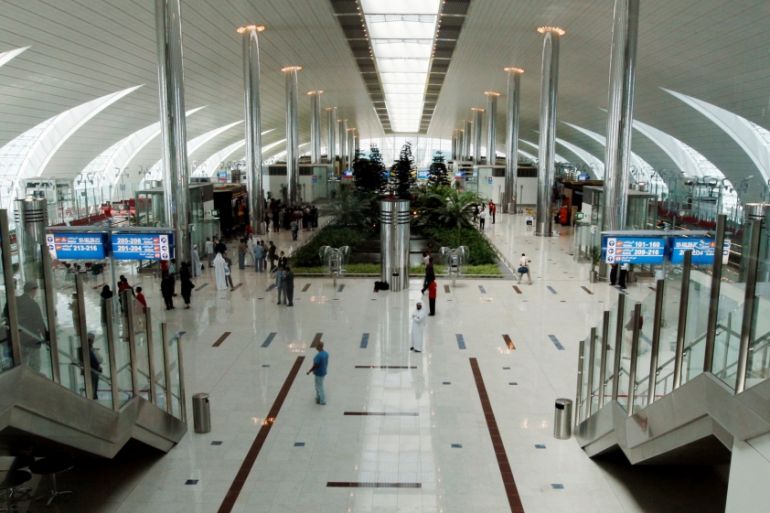Was Israel behind US laptop ban on Mideast airlines?
Questions swirl whether Tel Aviv was involved in peddling aviation-threat intelligence on ISIL – and motives behind it.

US news reports say Israel was the source of intelligence that President Donald Trump disclosed to the Russians during a White House meeting last week, igniting further controversy for the beleaguered administration.
According to a New York Times report on Tuesday,Israel was the source that shared with US spy agencies sensitive intelligence materials that Trump is said to have disclosed with the Russians.
Keep reading
list of 4 itemsSlovakia: PM Fico’s life no longer in danger after shooting, minister says
Three Afghans, three Spanish tourists killed in Bamyan shooting
David DePape, who attacked Nancy Pelosi’s husband, sentenced to 30 years
The content of the Israeli intelligence is reportedly about an Islamic State of Iraq and the Levant (ISIL) bomb plot targeting airliners using laptop computers.
National Security Advisor HR McMaster denied that Trump had disclosed any sources or methods to the Russians, saying the Washington Post report that first broke the story was “false”.
A CIA spokesperson declined to comment on the report and referred al Jazeera to the US National Security CounciL,NSC.
Trump confirmed later he shared information with Russian Foreign Minister Sergey Lavrov and Ambassador Sergey Kislyak.
|
|
Several US media organisations confirmed with their own sources the Times’ report that Israel was the source of the information.
In a statement, Israel’s Ambassador to the US Ron Dermer said Israel has “full confidence in our intelligence-sharing relationship with the United States”.
But he did not comment specifically on the veracity of the Times’ report.
The purported Israeli intelligence in question reportedly concerns ISIL’s newly acquired capability to hide sophisticated bombs inside laptop computers.
This information is said to have led the US government declaring the ban last March on all large electronic devices on board airlines coming to the US from eight Muslim-majority nations.
READ MORE: Trump disclosed secrets to Russia: Washington Post
The ban affects nine companies: Royal Jordanian Airlines, EgyptAir, Turkish Airlines, Saudi Airlines, Kuwait Airways, Royal Air Maroc, Qatar Airways, Emirates, and Etihad Airways.
All of these airlines have direct flights to the United States and pose strong competition to American aviation companies, especially during the busy summer season.
Former CIA case officer John Kiriakou expressed scepticism about Israel’s ability to obtain highly sensitive intelligence of this nature about ISIL.
“If it was the Jordanians or the Turkish intelligences services who have done that, it might make more sense because these organisations have a long history of dealing with groups like ISIL,” Kiriakou told Al Jazeera on Tuesday.
“I won’t be surprised if it turned out that Israel acted in its own interests to disrupt the Middle Eastern airlines business by throwing its own wrench into the whole thing,” he said.
READ MORE: Donald Trump defends sharing ‘facts’ with Russia
CNN reported on Tuesday it withheld reporting on the intelligence that led to the laptop ban after US intelligence officials made urgent requests to hold off for a March 31 story, citing national security concerns.
“What US officials told CNN in late March was that publishing certain information – including a city where some of the intelligence was collected – could tip off adversaries about the sources and methods used to gather the intelligence,” the American network said.
Other pundits challenged the entire narrative of Trump’s discussions with the Russians.
Washington DC-based analyst Peter Roff blamed the media for hyping Trump’s sharing of intelligence with Lavrov and Kislyak in stories based solely on “anonymous sources”.
“There is nothing wrong with the president sharing intelligence with the Russians as a goodwill gesture, given that both nations are fighting ISIL,” Roff told Al Jazeera.
Follow Ali Younes on Twitter: @ali_reports
|
|